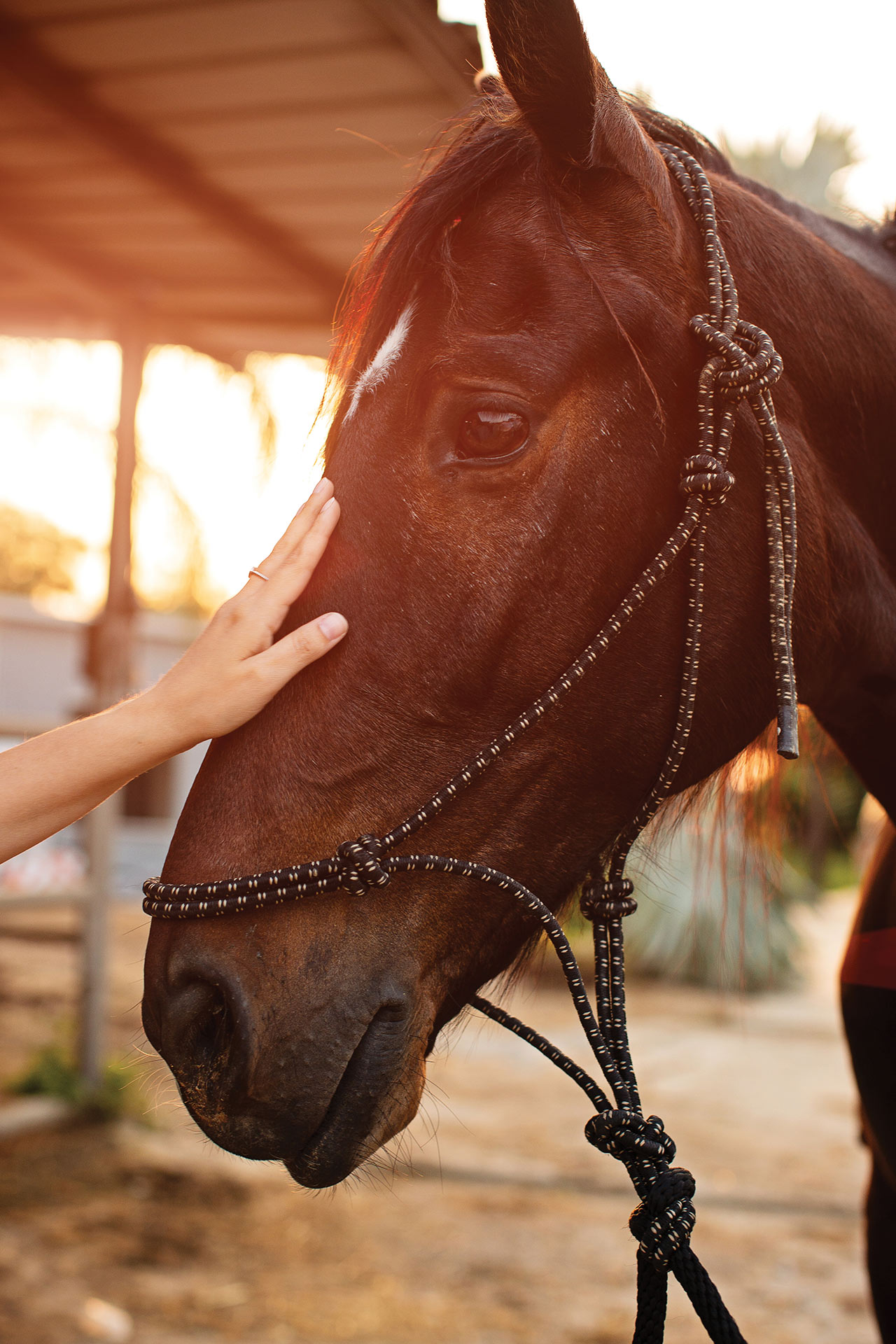
Numerous large metropolitan police agencies boast mounted units for crowd control and other duties. Ask any of these specialized officers about the relationship they form with their horses, and you probably will hear about a deep, indisputable emotional connection. Indeed, anyone who works with horses will attest to this unique tie between rider and animal, which is why more law enforcement advocates are touting the benefits of equine therapy.
The U.S. Department of Health estimates that 30% of first responders, including cops, will incur some form of behavioral and/or mental health concerns during their careers. They run a greater risk of experiencing depression, anxiety or post-traumatic stress injury (PTSI) than the general public.
“Sometimes police officers see things on a lot higher volume than regular people,” Cleveland Division of Police Captain Timothy Maffo-Judd told WKYC News.
Programs like In Step With Horses, located in Chester Township, Ohio, and Hunkapi in Scottsdale, Arizona, seek to help law enforcement professionals cope with the aftermath of job-related stresses through therapeutic relationships with horses. Therapeutic Horses of Saratoga, in New York, which uses retired racehorses to provide therapy to vulnerable community members including military veterans, is currently seeking grant funds to expand its services to first responders.
Equine therapy has long been known to produce impressive results for children with various levels of physical and mental abilities. Then programs began catering to veterans struggling to process their emotions associated with wartime duties. Now, counselors and therapists hope the same principles can help cops. Not only does equine therapy remove officers from high-stress environments and place them in more bucolic settings, but it also pushes them to focus on and learn how to change their own behaviors.
“The horse is such a good reflection of where we’re at emotionally. They’re really highly tuned to people’s emotional states around them.”
“To be out in nature with a horse in a paddock on a beautiful day with the sun, it makes people open up. …. It’s hard for law enforcement or veterans to open up at times. It just gives you a different environment to interact,” Officer Glenn Barrett, who is assigned to the Saratoga Police Department’s Mounted Unit, explained to News 10.
“My assignment is to help police officers with issues they might deal with on the job, in their personal lives. We establish programs that help them deal with stress, trauma, all of that,” Detective Chris Gibbons, part of the CDP Employee Assistance Unit, told WKYC. One of those programs is a partnership with In Step With Horses.
One of the first, and most impactful, lessons the program teaches participants is the instinctual reactions horses have to a person’s energy or approach — because as prey animals, they need to be highly alert to nonverbal cues about whether someone presents a threat. The animal could turn and move away, pin its ears back or gently acquiesce, depending on its assessment of an individual’s presentation.
“The horse is such a good reflection of where we’re at emotionally. They’re really highly tuned to people’s emotional states around them,” Gibbons said.
“The horse reminds us what it’s like to be dealt with by the police. It can be intimidating and scary. So we try to be conscious of the energy that we’re bringing, what the uniform means to people that we encounter,” he added.
The lesson has participants observe and compare the horse’s responses when they approach it for the first time without any preparation, and then for a second time after learning calming, yoga-like breathing techniques. When they approach mindfully, the horse feels safe enough to interact and begin to bond. That allows participants to progress to more challenging exercises, like leading the animal through an obstacle without touching it.
“It’s teaching us to be a team, but also to be flexible and be willing to change our approach,” Gibbons explained. “To say, ‘Let’s go with what’s working here and let’s try things.’ If we make a mistake, we can revisit and we can, we can circle back and try and do it again.”
The goal is to have graduates rely on those skills back on the job. “[W]hen you can take that breath, listen, be calm, you, most of the time, you calm that person down as well. So it definitely, it affects the job, and it affects how we deal with the people that we work with in the community,” CPD Sergeant Stephanie Murphy said.
In addition to teaching officers how calming themselves and others can be beneficial in a work context, equine therapy can help heal trauma and promote overall mental wellness.
“It also teaches ways to cope with stress, anger, emotional issues,” Jan Collins, a retired firefighter who was part of Hunkapi’s equine therapy program for three years, told Arizona Family. “It uses the horses to show us the behavior in a healthy manner, so we can recognize it in ourselves and learn to track our own bodies and our own nervous systems to make our lives better.”
As seen in the April 2023 issue of American Police Beat magazine.
Don’t miss out on another issue today! Click below:





